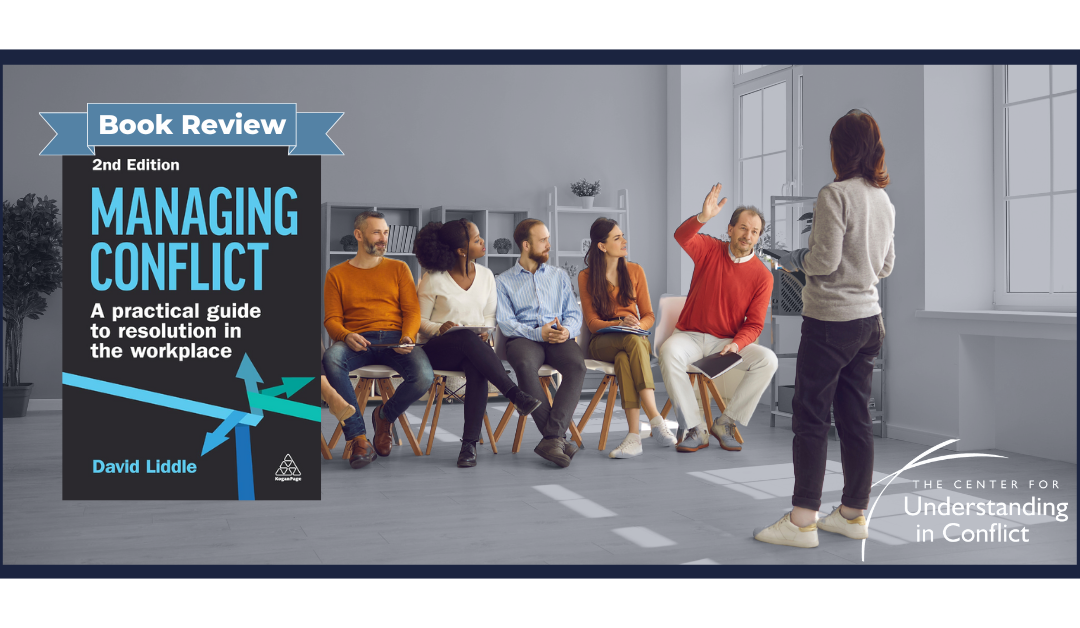
Managing Conflict: A Practical Guide to Resolution in the Workplace by David Liddle
Managing Conflict, a unique and comprehensive resource, is a must-read for conflict resolution and mediation practitioners, particularly those focused on workplace mediation. The second edition of this book, which is a testament to its value, enhances its...
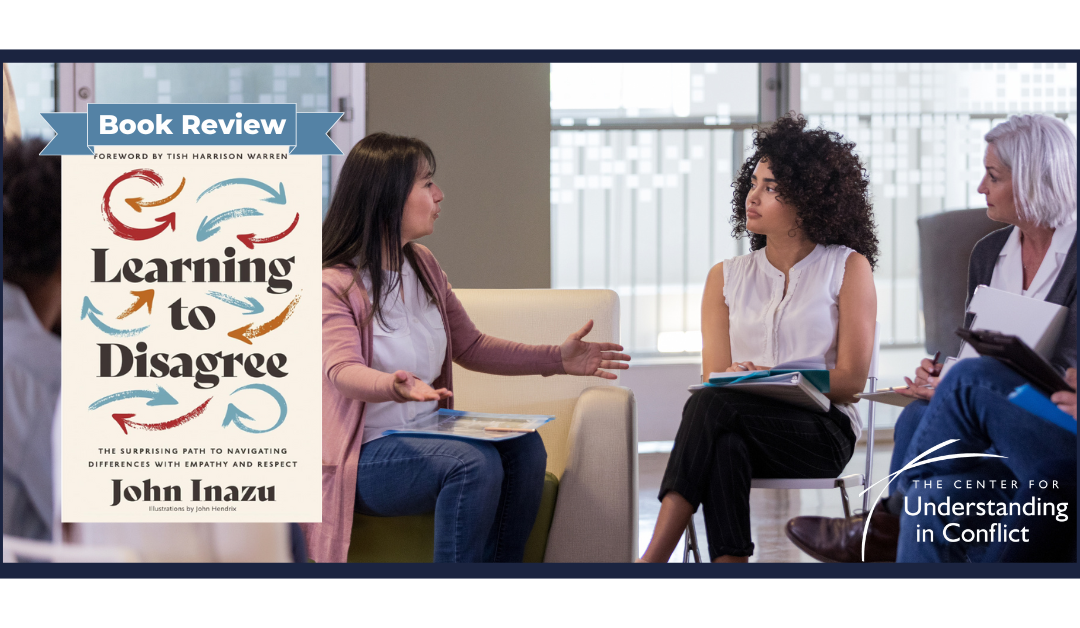
Learning to Disagree: The Surprising Path to Navigating Differences with Empathy and Respect by John Inazu
Inazu's book is particularly relevant for conflict resolution professionals who constantly navigate complex interpersonal dynamics and mediate disputes. His approach emphasizes the foundational principles of empathy, respect, and understanding, which are essential...
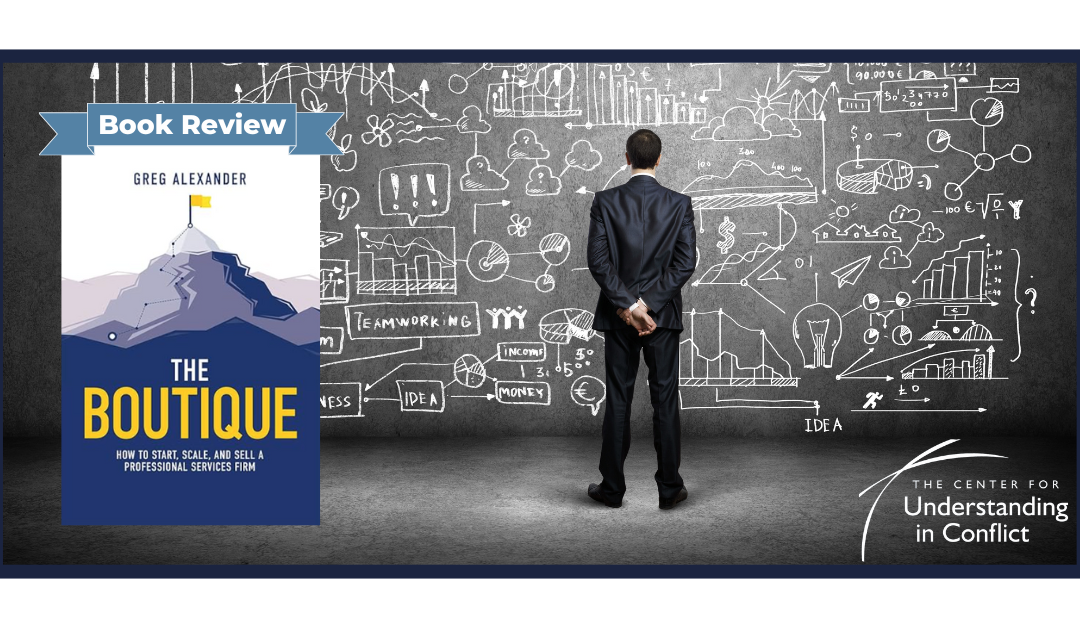
The Boutique: How To Start, Scale, And Sell A Professional Services Firm by Greg Alexander
For conflict resolution and mediation practitioners, starting a firm can often seem daunting due to the specialized nature of their work and the necessity for a robust reputation. Alexander demystifies this process by emphasizing the importance of establishing a clear...
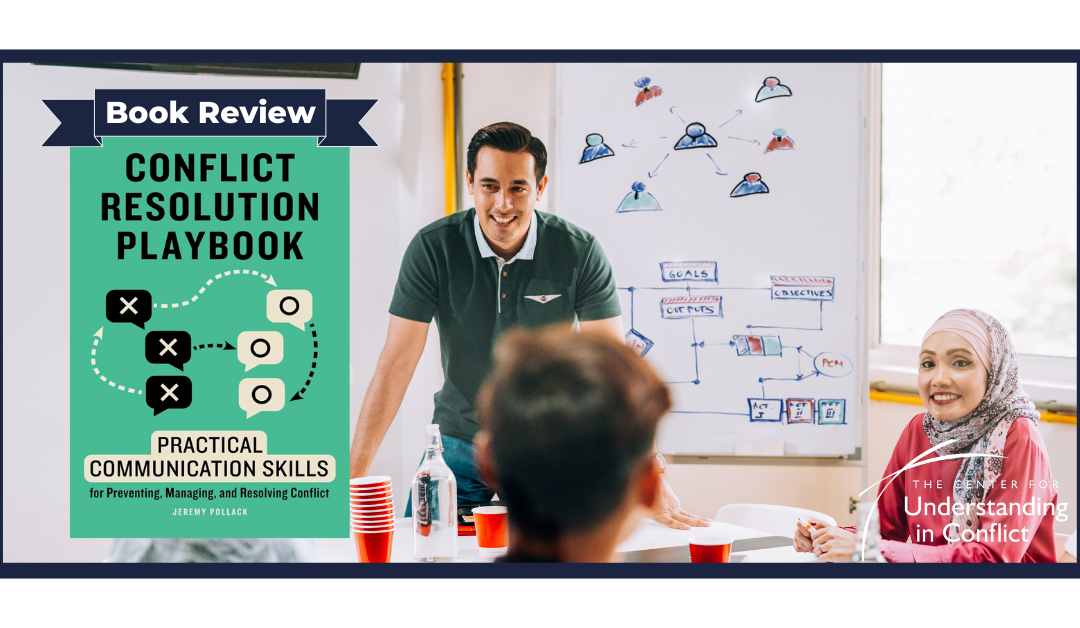
Conflict Resolution Playbook: Practical Communication Skills for Preventing, Managing, and Resolving Conflict by Jeremy Pollack
In the ever-evolving landscape of interpersonal dynamics, Jeremy Pollack's "Conflict Resolution Playbook: Practical Communication Skills for Preventing, Managing, and Resolving Conflict" contains insight and guidance for everyone, not just conflict resolution and...
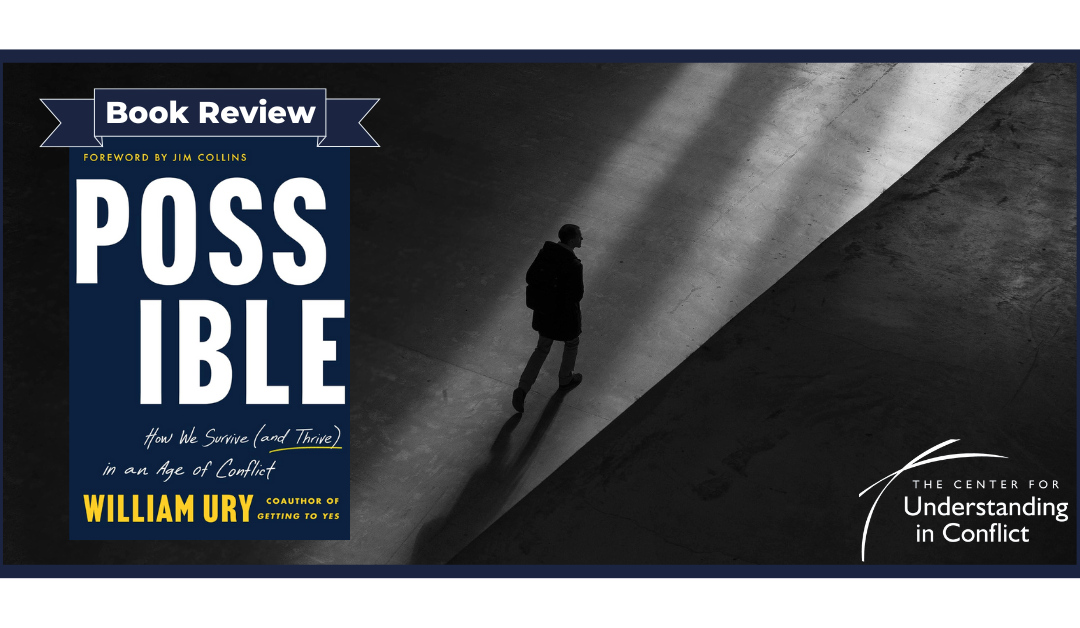
Possible: How We Survive (and Thrive) in an Age of Conflict by William Ury
In an era plagued by conflict, uncertainty, and polarization, William Ury's book, Possible: How We Survive (and Thrive) in an Age of Conflict, emerges as a beacon of hope and a roadmap for conflict resolution and mediation practitioners. Ury, a seasoned mediator and...

The Making of a Mediator: Developing Artistry in Practice by Michael D. Lang and Alison Taylor
As conflict resolution and mediation practitioners, we continuously seek ways to refine our craft, enhance our skills, and deepen our understanding of the complex dynamics in mediation processes. In The Making of a Mediator, Michael D. Lang and Alison Taylor...

Mom Always Liked You Best: A Guide for Resolving Family Feuds, Inheritance Battles & Eldercare Crises
In family dynamics, conflicts often arise, reaching their zenith during life-altering events such as inheritance battles and eldercare crises. Mom Always Liked You Best: A Guide for Resolving Family Feuds, Inheritance Battles & Eldercare Crises by Arline Kardasis,...
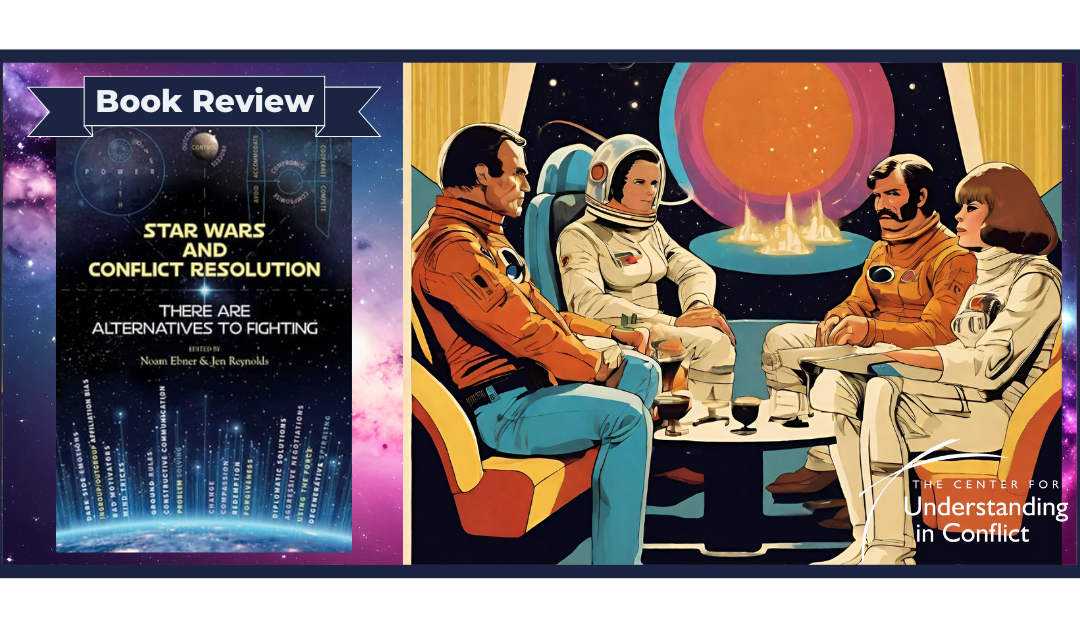
Star Wars and Conflict Resolution – A Galactic Journey into the Art of Peacemaking
In the vast universe of conflict resolution literature, Star Wars and Conflict Resolution by Noam Ebner and Jen Reynolds stands out as a unique and captivating exploration of the intersections between the iconic Star Wars saga and the principles of conflict...

High Conflict: Why We Get Trapped and How We Get Out by Amanda Ripley
In her thought-provoking book High Conflict: Why We Get Trapped and How We Get Out, Amanda Ripley takes readers on a captivating journey into the intricacies of human behavior and the psychological mechanisms that contribute to our entrapment in various life...

Managing Conflict Mindfully: Don’t Believe Everything You Think by Leonard Riskin
Managing Conflict Mindfully offers readers an insightful and practical guide to approaching conflicts with a fresh perspective. Drawing on his extensive experience as a mediator and scholar, Riskin presents a compelling argument for the power of mindfulness in...

When You Greet Me I Bow: Notes and Reflections from a Life in Zen, by Norman Fischer
In When You Greet Me I Bow: Notes and Reflections from a Life in Zen, author, Zen Buddhist priest, and CUC trainer Norman Fischer offers a profoundly insightful and thought-provoking exploration of Zen philosophy that resonates deeply with conflict resolution and...

Inside Out: How Conflict Professionals Can Use Self-Reflection to Help Their Clients
Inside Out: How Conflict Professionals Can Use Self-Reflection to Help Their Clients by Gary J. Friedman is an insightful and thought-provoking book authored by a renowned expert in conflict resolution. This book serves as a valuable guide to understanding the crucial...

The Human Network: How Your Social Position Determines Your Power, Beliefs, and Behaviors, by Matthew O. Jackson
The Human Network by Matthew O. Jackson is a fascinating exploration of the power of social networks in shaping our beliefs, behaviors, and, ultimately, our position in society. One of the book's key themes is the idea that our social position within a network can...
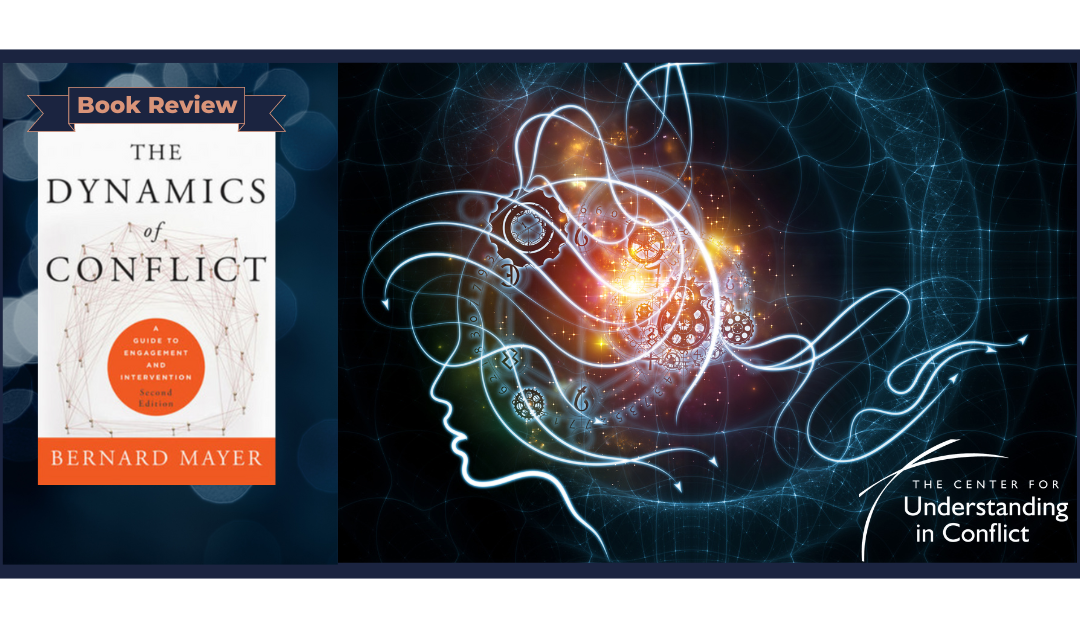
The Dynamics of Conflict: A Guide to Engagement and Intervention by Bernard S. Mayer
The Dynamics of Conflict: A Guide to Engagement and Intervention by Bernard S. Mayer is a comprehensive and practical guide for conflict resolution and mediation professionals. Mayer has structured the book in a way that is easy to follow and provides clear...

The New Rules of Divorce: Twelve Secrets to Protecting Your Wealth, Health, and Happiness By Jacqueline Newman
Just as the Understanding-Based Model of conflict resolution was initially born out of a desire to provide an alternative to longstanding assumptions about settling disputes at the barrel of the court system, new and innovative approaches to overcoming the challenges...
The following are books written by our teachers.
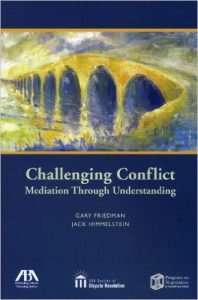 Challenging Conflict: Mediation Through Understanding by Gary Friedman and Jack Himmelstein
Challenging Conflict: Mediation Through Understanding by Gary Friedman and Jack Himmelstein
This book provides an analysis of understanding conflict. Understanding-based mediation offers people in conflict a way to work together to make decisions that resolve their dispute. The authors explain how to meet conflict itself in an effort to understand how lawyers can relate to it, and use it effectively in mediation.
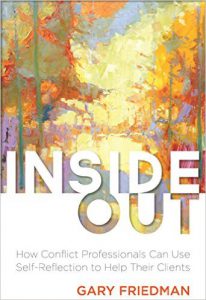 Inside Out: How Conflict Professionals Can Use Self-Reflection to Help Their Clients by Gary Friedman
Inside Out: How Conflict Professionals Can Use Self-Reflection to Help Their Clients by Gary Friedman
This book is designed to help people who work with parties in conflict use their inner experiences for the benefit of their clients. It challenges many of the conventions conflict professionals bring to this field, replacing them with a full and deep commitment to bringing all of ourselves to serving those who need us.
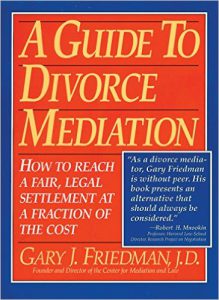 A Guide to Divorce Mediation: How to Reach a Fair, Legal Settlement at a Fraction of the Cost by Gary Friedman
A Guide to Divorce Mediation: How to Reach a Fair, Legal Settlement at a Fraction of the Cost by Gary Friedman
In this book, Gary Friedman lists four criteria necessary for every couple about to enter into mediation: motivation to mediate, self-responsibility, willingness to disagree, and willingness to agree. He explains the ground rules, the legal ramifications, and where to find a mediator. Also included are 12 detailed case studies to show how in almost all instances mediation has succeeded with a variety of personalities and situations.
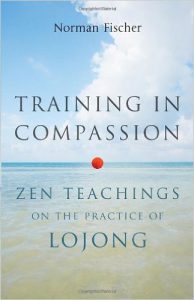 Training in Compassion: Zen Teachings on the Practice of Lojong by Norman Fischer
Training in Compassion: Zen Teachings on the Practice of Lojong by Norman Fischer
Lojong is the Tibetan Buddhist practice that involves working with short phrases (called “slogans”) as a way of generating bodhichitta, the heart and mind of enlightened compassion. Norman Fischer offers his commentary on the lojong slogans. He applies Zen wisdom to them, showing how well they fit in that related tradition, but he also sets the slogans in the context of resonant practices throughout the spiritual traditions. He shows lojong to be a wonderful method for everyone, including those who aren’t otherwise interested in Buddhism, who don’t have the time or inclination to meditate, or who’d just like to morph into the kind of person who’s focused rather than scattered, generous rather than stingy, and kind rather than thoughtless.
“The conflict Norman Fischer speaks of in this poem is an inherent component of the universe. He writes of the human dilemma, the struggles of daily life, and the desire to ‘hold the world in place,’ showing us how not to be mired in any one spot. Freedom is won by tirelessly moving forward. The lines breathe: the poet’s breath, and the complexity of his thought, visualized on the page.”—Anne Tardos
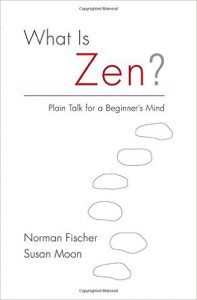 What is Zen?: Plain Talk for a Beginner’s Mind by Norman Fischer and Susan Moon
What is Zen?: Plain Talk for a Beginner’s Mind by Norman Fischer and Susan Moon
The question-and-answer format makes this introduction to Zen especially easy to understand—and also to use as a reference, as you can easily look up just the question you had in mind. The esteemed Zen teacher Norman Fischer and his old friend and teaching colleague Susan Moon (both of them in the lineage of Shunryu Suzuki, author of Zen Mind, Beginner’s Mind) give this collaborative effort a playful tone: Susan asks a question on our behalf, Norman answers it, and then Sue challenges him. By the time you get through their conversations, you’ll have a good basic education in Zen–not only the history, theory, and practice but also the contemporary issues, such as gender inequality, sexual ethics, and the tension between Asian traditions and the modern American reality.
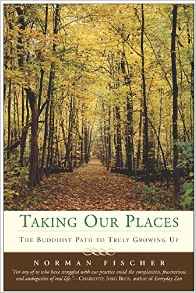 Taking Our Places: The Buddhist Path to Truly Growing Up by Norman Fischer
Taking Our Places: The Buddhist Path to Truly Growing Up by Norman Fischer
This engaging contemplation of maturity addresses the long neglected topic of what it means to grow up, and provides a hands–on guide for skilfully navigating the demands of our adult lives. Growing up happens whether we like it or not, but maturity must be cultivated. Challenged to consider his own sense of maturity while mentoring a group of teenage boys, Fischer began to investigate our preconceptions about what it means to be “an adult” and shows how crucial true maturity is to leading an engaged, fulfilled life. Taking Our Places details the marks of a mature person and shows how these attributes can help alleviate our suffering and enrich our relationships. Discussing such qualities as awareness, responsibility, humour, acceptance, and humility, Fischer brings a fresh and at times surprising new perspective that can turn old ideas on their heads and reinvigorate our understanding of what it means to be mature.
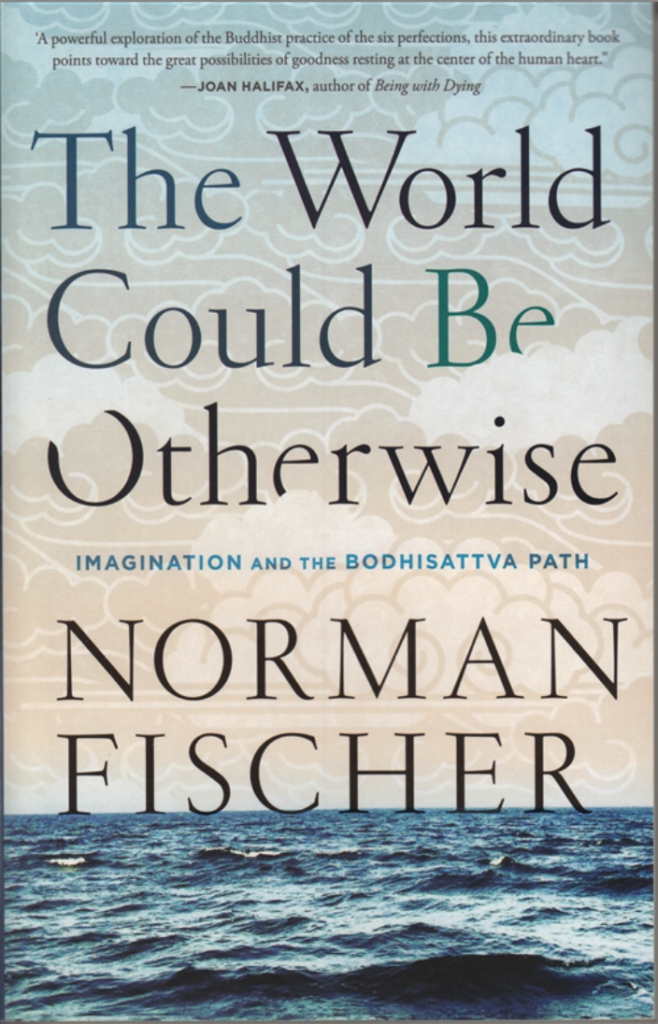 The World Could Be Otherwise: Imagination and the Bodhisattva Path by Norman Fischer
The World Could Be Otherwise: Imagination and the Bodhisattva Path by Norman Fischer
In frightening times, we wish the world could be otherwise. With a touch of imagination, it can be. Imagination helps us see what’s hidden, and it shape-shifts reality’s roiling twisting waves. In this inspiring reframe of a classic Buddhist teaching, Zen teacher Norman Fischer writes that the paramitas, or “six perfections”—generosity, ethical conduct, patience, joyful effort, meditation, and understanding—can help us reconfigure the world we live in.
Ranging from our everyday concerns about relationships, ethics, and consumption to our artistic inspirations and broadest human yearnings, Fischer depicts imaginative spiritual practice as a necessary resource for our troubled times.
